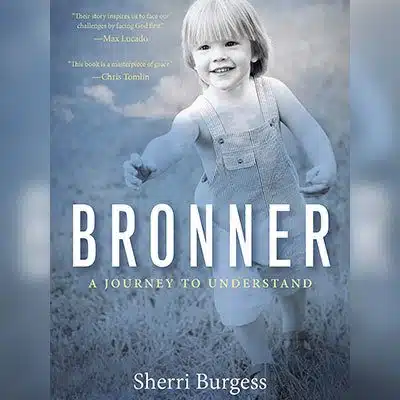New York Times Best Selling Author Andy Andrews Reviews “Bronner, A Journey to Understand”
As long as books have been printed, there have been memoirs. As long as there have been memoirs, the most compelling of those have dealt with tragedy. As long as there has been a tragedy, the very worst has always involved the death of a child. That particular tragedy is of such a devastatingly personal nature that even in print, most of us avert our eyes. We simply do not want to read about the happening or the anguish of the parents whose lives have been changed forever. In short, most books of this type do not fare well in the bookstore. There are exceptions, of course…some of the works surrounding the abduction and murder of Adam Walsh in 1981 made best-seller lists all over the world. There is, however, a “movie of the week” quality to the telling of the story in most of those type of books that is regrettable. I do understand the public’s desire to keep their distance, but still, the effect in terms of value is negligible and regrettable. That style allows the reader to avoid becoming too emotionally involved. Yes, there is some degree of value in a tragic tale told in this manner. Unfortunately, the “take-home” for the reader comes mostly in the form of gratefulness that the incident was not visited upon our own children or our families. We are able to read while retaining an emotional detachment. Then there is BRONNER. Perhaps the clearest explanation regarding the massive value contained in this book is described by its simple subtitle: A Journey To Understand. The author was the mother of this child and it is significant to note that the book was written–not all at once or with a book deal in place–but over a period of five long years. The retelling of Bronner’s accidental drowning one winter afternoon is as one might imagine, difficult to read. Incredibly, however, the author related those tragic moments with an emotion that was more matter of fact than shocking or terrifying. Rather than titillate, the narrative seeks to inform. This style brilliantly sets the stage for the revelations of life-altering value (for you and me) that have been mined from the questions produced by the heartache of Bronner’s own mother. True wisdom can be defined as a deep understanding of the principles that govern our world. A deep understanding of any principle takes time. The Christian community, parents whose family futures are still unknown, and the literary world at large owe a great deal to Sherri Burgess. It took guts to write this book. Knowing the publishing world as I do, it also required a financial sacrifice to ignore the opportunity to rush the book into the marketplace. It took wisdom and patience to wait, to learn, to understand. And it took talent and skill to put every thought in its proper order and every word in its proper place in order that we, too, might understand. In closing, I’d like to point out that BRONNER contains value far beyond the feeling of gratefulness that will surely envelop you as you read. This book relates true wisdom–deep understanding–about the sometimes tragic events that befall us. And it does so in a way that makes a unique difference, even while experiencing the grief produced by losing a loved one. With the proof only principle can provide, the author reveals answers that will banish the emptiness that often overwhelms a family. By revealing truth instead of platitudes or mere speculation, Burgess will have changed the immediate and long-term futures of readers all over the world. This book will have eternal consequences. It is the best of it’s genre. It has no peer.

How to be a Man
Pursuing Christ-Centered Masculinity
by Rick Burgess and Andy Blanks

Transformed
Embracing The Death Of Self And The Power Of God
by Rick Burgess

Sin Always Matters
The Cost of Sin and the Power of Grace
by Rick Burgess



